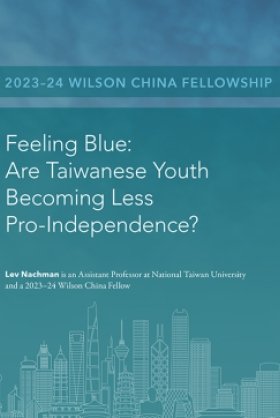Feeling Blue: Are Taiwanese Youth Becoming Less Pro-Independence?



The goal of this project is to address two interconnected puzzles, one of scholarly inquiry and the other of critical relevance to the foreign policy community: why are Taiwanese youth less pro-independence than in previous years? Why have young Taiwanese voters become more attracted to the pan-blue Taiwan People’s Party (TPP) instead of the pan-green Democratic Progressive Party (DPP)? By conducting 20 qualitative focus groups around Taiwan with over 100 college students, this paper begins to theorize why exactly we may be seeing a change in political attitudes within Taiwan’s youngest voting demographic. This project is particularly relevant to both the policy and academic communities because it addresses a growing foreign policy question: what explains fundamental changes in voting behavior in Taiwan? How might these changes alter Taiwan’s own foreign policy goals? How can we better understand, and subsequently predict, how Taiwanese voters will behave in the future? Understanding how the youngest cohort of voters in Taiwan feels about politics, identity, China, the United States, and their own aspirations will become a paramount question for both scholars and politicians in the coming years. This project is the first to exclusively focus on Taiwan's youngest voting demographic. Despite speculation and inference from other data sources, we lack meaningful data that helps us understand Taiwan's youth. This project will fill an increasingly important gap for both the foreign policy community and academics alike.


The Kissinger Institute works to ensure that China policy serves American long-term interests and is founded in understanding of historical and cultural factors in bilateral relations and in accurate assessment of the aspirations of China’s government and people. Read more
